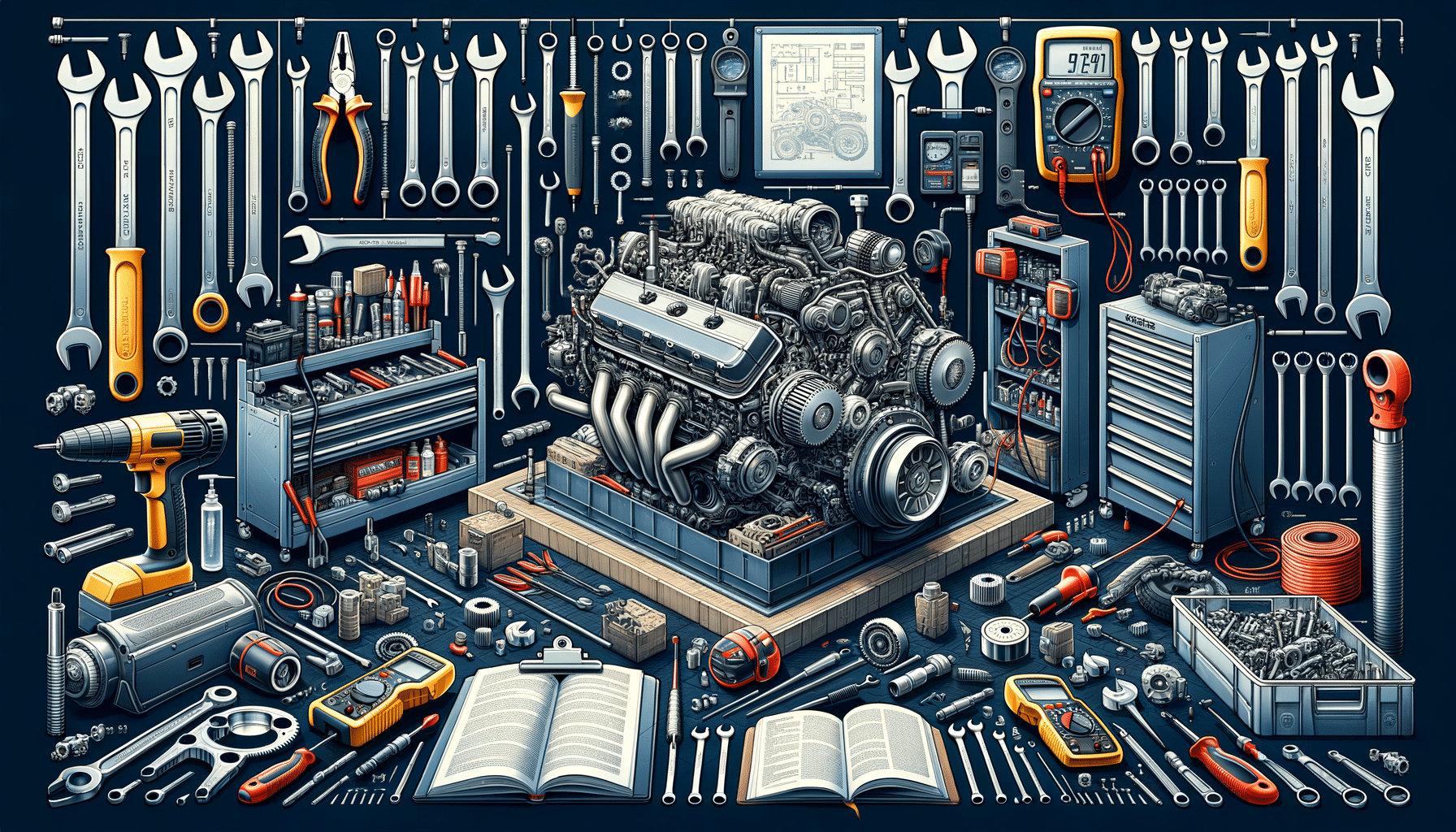
Mastering Engine Repair: A Comprehensive Guide to Learning and Executing Repairs
Introduction to Mechanic Training Programs
In today’s fast-paced world, the demand for skilled mechanics is ever-increasing. Whether you’re a novice looking to enter the field or an experienced technician seeking to enhance your skills, mechanic training programs offer a pathway to success. These programs are designed to equip individuals with the knowledge and hands-on experience necessary to excel in the automotive industry. From understanding the intricacies of engine systems to mastering diagnostic tools, mechanic training programs provide a comprehensive education that is both practical and theoretical.
Mechanic training programs are not just about learning to fix cars; they’re about understanding the science behind automotive technology. With the rise of electric vehicles and advanced automotive systems, the need for specialized training has never been greater. These programs are tailored to meet the evolving needs of the industry, ensuring that graduates are well-prepared to tackle the challenges of modern vehicle repair and maintenance.
Exploring Mechanic Training Programs Near You
Finding the right mechanic training program can be a daunting task, especially with the myriad of options available. When searching for “mechanic training programs near me,” it’s essential to consider factors such as accreditation, curriculum, and hands-on training opportunities. Local community colleges and technical schools often offer programs that are both affordable and comprehensive, providing students with the skills needed to succeed in the automotive industry.
One of the advantages of enrolling in a local program is the opportunity for networking and job placement. Many schools have partnerships with local automotive shops and dealerships, offering students internships and job opportunities upon graduation. Additionally, attending a program close to home can reduce travel costs and allow for a more flexible schedule, making it easier to balance work and study commitments.
When evaluating programs, it’s important to look for those that offer a blend of classroom instruction and practical experience. Courses should cover a wide range of topics, including engine repair, electrical systems, and automotive technology. By choosing a program that aligns with your career goals and learning style, you can set yourself up for success in the dynamic field of automotive repair.
The Structure of Mechanic Training Programs
Mechanic training programs are typically structured to provide a comprehensive education in automotive repair and maintenance. These programs often begin with foundational courses in automotive technology, covering topics such as engine systems, transmissions, and brake systems. As students progress, they move on to more advanced subjects, including diagnostics, electrical systems, and hybrid vehicle technology.
Hands-on training is a critical component of any mechanic training program. Students are given the opportunity to work on real vehicles in a controlled environment, allowing them to apply theoretical knowledge to practical situations. This experiential learning approach is essential for developing the problem-solving skills and technical expertise required in the field.
Many programs also offer specialized courses in areas such as diesel technology, performance tuning, or automotive electronics. These electives allow students to tailor their education to their specific interests and career aspirations. By providing a well-rounded curriculum that combines theory and practice, mechanic training programs prepare students for a successful career in the automotive industry.
Choosing the Right Mechanic Training Program
When selecting a mechanic training program, it’s important to consider several key factors to ensure you make an informed decision. Accreditation is one of the most important aspects to consider, as it ensures the program meets industry standards and provides a quality education. Accredited programs are often recognized by employers, increasing your chances of securing a job after graduation.
Another factor to consider is the program’s curriculum. Look for programs that offer a comprehensive range of courses covering both basic and advanced topics in automotive repair. Additionally, consider the availability of hands-on training opportunities, as practical experience is crucial for developing the skills needed in the field.
Finally, consider the program’s reputation and job placement rates. Researching alumni success stories and speaking with current students can provide valuable insights into the program’s effectiveness. By carefully evaluating these factors, you can choose a mechanic training program that aligns with your career goals and sets you on the path to success.
Conclusion: Embarking on a Career in Automotive Repair
Embarking on a career in automotive repair is a rewarding journey that offers both challenges and opportunities. Mechanic training programs provide the foundation needed to succeed in this dynamic field, offering a blend of theoretical knowledge and practical experience. By choosing the right program, you can gain the skills and expertise necessary to thrive in the automotive industry.
As the demand for skilled mechanics continues to grow, now is the perfect time to pursue a career in automotive repair. Whether you’re interested in engine repair, diagnostics, or advanced automotive technology, mechanic training programs offer a pathway to success. By investing in your education and honing your skills, you can build a fulfilling career in a field that is both essential and ever-evolving.


